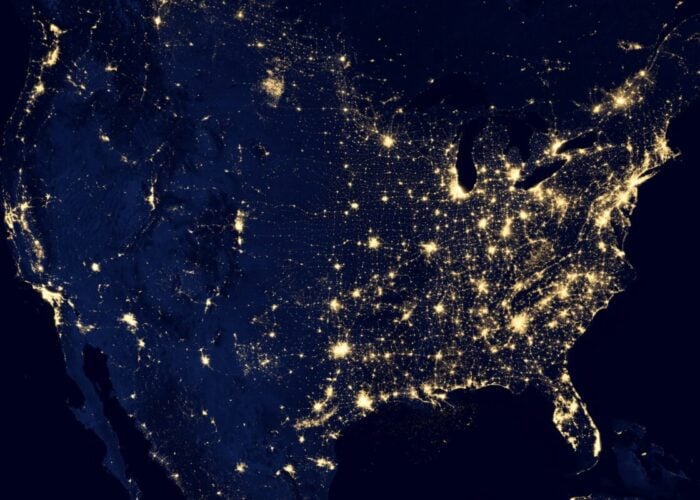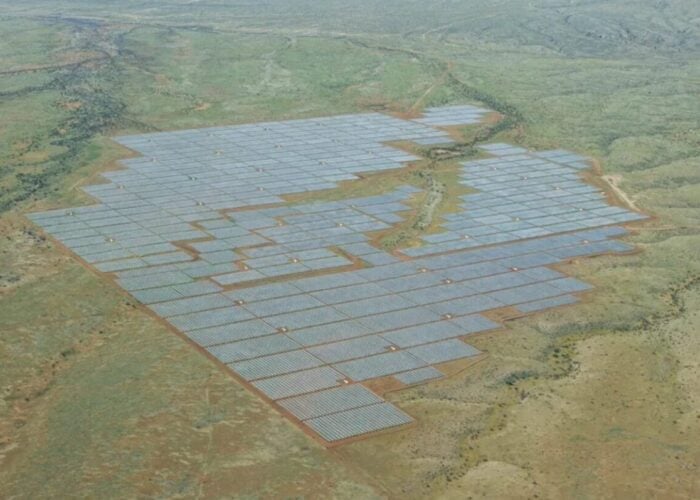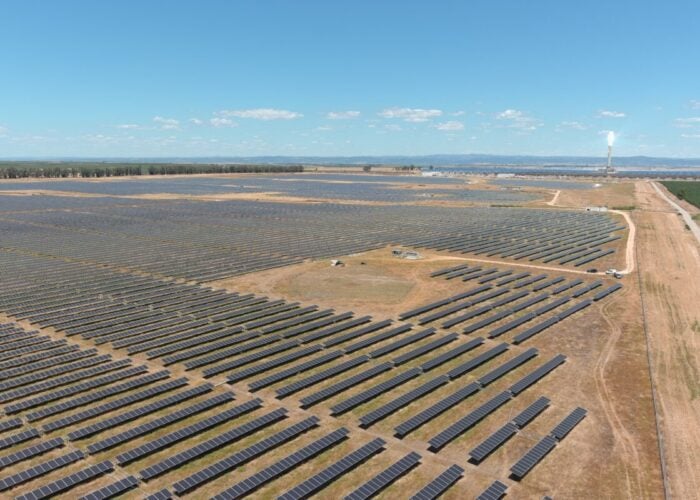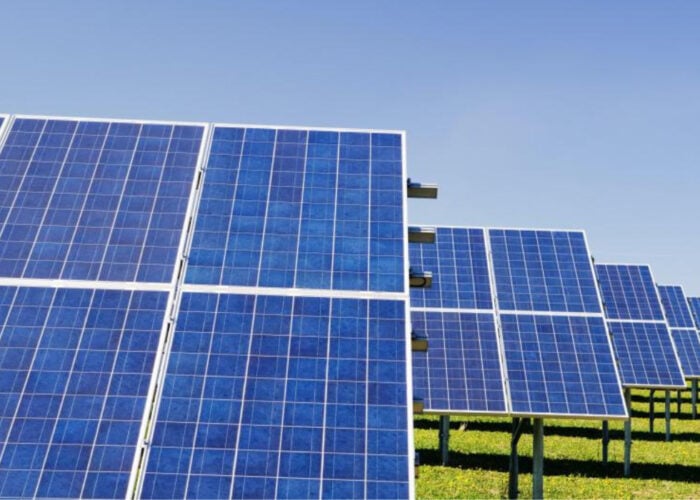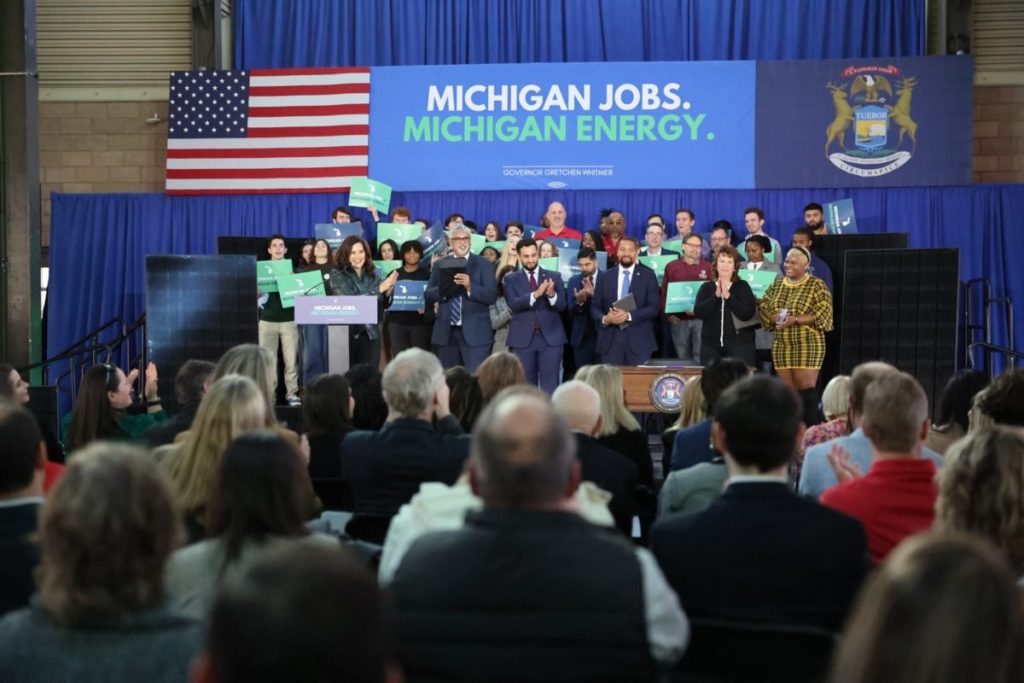
Michigan governor Gretchen Whitmer has signed a number of bills into law to significantly increase the contribution of renewable energy to the Michigan energy mix.
The state legislature agreed upon the bills, collectively known as the Clean Energy Future Plan, earlier this month, and this week, Whitmer signed them into law in their original form. The new legislation is headlined by a commitment to meet 100% of the Michigan energy demand with renewable energy sources by 2040, and a requirement for Michigan utilities to acquire 15% of their electricity from renewable sources.
Unlock unlimited access for 12 whole months of distinctive global analysis
Photovoltaics International is now included.
- Regular insight and analysis of the industry’s biggest developments
- In-depth interviews with the industry’s leading figures
- Unlimited digital access to the PV Tech Power journal catalogue
- Unlimited digital access to the Photovoltaics International journal catalogue
- Access to more than 1,000 technical papers
- Discounts on Solar Media’s portfolio of events, in-person and virtual
“I am proud that these bills make Michigan the best state in the Midwest for climate action and the strongest state in the nation when it comes to labour standards for clean energy production,” said Whitmer upon signing the bills into law.
Delivering the energy transition
The state government also pointed to a report compiled by 5 Lakes Energy, which found that, if the Michigan energy demand is met entirely by renewables in 2035, ahead of the targets set out in the new laws, household energy costs would be lowered by US$145 and the state’s energy sector would receive US$7.8 billion in new funding. This suggests that the government is keen to accelerate its energy transition as quickly as possible, beyond the targets set in the new laws.
The Michigan energy storage sector could also be a particular beneficiary of the new laws, with the government aiming to install 2.5GW of battery storage capacity by the end of this decade, demonstrating that the new laws aim to reform not just the state’s power generation processes, but its energy mix as a whole.
The laws have received support from both non-profit organisations and industry. “These bills translate into better air, water, and health for everyone,” said Derrell Slaughter, Michigan clean energy advocate at the Natural Resources Defense Council, a US environmental advocacy group.
“Michigan has seized the opportunity to demonstrate our commitment to combating climate change and ensure a sustainable, just, and prosperous future for our state.”
“We are very excited to see this legislation pass,” added Scott Viciana, vice president of sales and business development at Ventower Industries, a steel manufacturer based in Michigan. “Ventower and other Michigan businesses in the clean energy industry stand ready to produce the components needed for this transition and grow our workforce to build, develop, and deploy new projects across the state.”
New clean energy grants
The following day, the Michigan Department of Environment, Great Lakes and Energy opened applications for four new grant programmes to accelerate the installation of clean energy capacity in the state. Much of the funding has been set aside for electric vehicle (EV) and grid electricity infrastructure, with US$1.2 million available for projects to build new EV charging stations and a further US$250,000 available for what the department calls “small manufacturers” to improve energy efficiency at their operations.
However, some funding has been earmarked for renewable power generation, such as solar. The department has set aside US$250,000, with a maximum of US$25,000 per project, for farmers and rural businesses to build new clean energy projects.
This could be of particular benefit for the clean energy jobs sector, with the US Solar Energy Information Administration noting that the state already has 4,073 jobs in the solar sector. According to Clean Jobs America (CJA), Michigan added 5,410 new jobs in the renewable energy sectors in 2022, behind only California, Texas and New York.
CJA also notes that construction and manufacturing jobs account for, by far, the most jobs in the Michigan clean energy sector, and the opportunity for the addition of new renewable power generation in the state will only accelerate this transition.
Mixed support
However, the new laws have drawn criticism, not least that its definition of “clean” energy includes carbon capture and storage facilities that are 90% effective. The laws have also been criticised by the state’s Republican politicians, who have argued that, considering rising energy prices in Michigan, now is not the time for considerable change to the state’s energy mix.
Between November 2022 and November 2023, the average energy price in the state increased by 1.3% from US$0.1586/kWh to US$0.1607/kWh, which has made energy in Michigan more expensive than in states with larger energy demands, such as Florida and Texas.
“Michigan already has energy that costs too much and a supply grid that fails too often,” said Republican senator Thomas Albert. “This misguided plan would make things even worse for families and businesses at a time they can least afford it. Energy transition should happen more naturally and seamlessly, not through forced and rushed government mandates.”
This is particularly notable considering the nature of the Michigan House, which is split equally between Democrats and Republicans. The Democrats held a narrow majority of 56-54 when the bills were voted on, with Democrats supporting the bills and Republicans opposing them, and two of the Democrat politicians who voted in favour of the new laws, Kevin Coleman and Lori Stone, are stepping down from their positions to run for mayoral positions within the state.
This raises questions about the long-term future of the Michigan energy mix, and the next cycle of elections could have a significant impact on the state’s ability to meet its new clean energy targets. However, with the targets in place, there remains optimism for the Michigan renewables and solar sectors.
“Together, we are fighting for our air, land, and water, improving public health and protecting our precious natural resources for future generations,” added Whitmer. “We are building the future in Michigan.”

